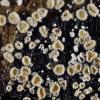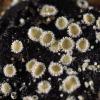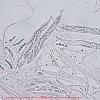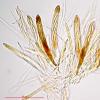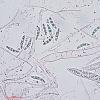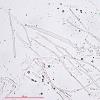
10-02-2012 20:30
 Alex Akulov
Alex Akulov
Dear FriendsI am trying to identify the anamorphic

10-02-2012 21:44
Hi all.I have a collection of Hymenoscyphus phasco

07-02-2012 16:26
25.06.11. Pycn. immergテゥes, en colonies, sur branc

09-02-2012 17:17
Bonjour テ tous,Quelques petites rテゥcoltes faites

08-02-2012 18:25
Bonjour テ tous,Cela fair plusieurs fois que je ne

08-02-2012 17:48
Bonjour テ tous,Alors lテ... Un Gibberella ou truc
Another Lachnum?
Miguel テ]gel Ribes,
01-07-2009 23:48
![Miguel Ã]gel Ribes](/uploads/user_vgn/Ribes-0001.jpg) Good night
Good nightThis another Lachnum ? on a branch of "tejo" (Erica platycodon) and "viテアatigo" (Persea indica) or laurel (Laurus novocanariensis) of "faya" (Myrica faya), not in coniferous wood, no more than 1 mm, without stem, hymenium beige, similar colour or darker outside, white hairs in gruops or lines (like a dentate wheel).
Spores measurement (1000x, in water, fresh material, following the spore shape)
14.2 [16.3 ; 17] 19.1 x 2.4 [2.9 ; 3] 3.5; Q = 4.7 [5.5 ; 5.9] 6.7 ; N = 45 ; C = 95%; Me = 16.67 x 2.94 ; Qe = 5.7
Asci measurement (1000x, in water, fresh material)
79.7 [86.2 ; 90.9] 97.3 x 7.3 [8 ; 8.6] 9.3; N = 14 ; C = 95%; Me = 88.51 x 8.29
Hairs measurement (400x, in water, fresh material), at least:
140.5 [168 ; 185.6] 213.1 x 1.9 [2.8 ; 3.4] 4.3; N = 17 ; C = 95%; Me = 176.8 x 3.1
Thnak you,
Miguel テ]gel Ribes,
01-07-2009 23:50
Miguel テ]gel Ribes,
01-07-2009 23:57
Miguel テ]gel Ribes,
01-07-2009 23:59
Miguel テ]gel Ribes,
02-07-2009 00:04
Hans-Otto Baral,
02-07-2009 08:17

Re:Another Lachnum?
The spores appear to be no more than 1-septate when mature. I think this should be Lasiobelonium lonicerae.
Zotto
Zotto
Miguel テ]gel Ribes,
02-07-2009 17:36
![Miguel Ã]gel Ribes](/uploads/user_vgn/Ribes-0001.jpg)
Re:Another Lachnum?
Hello Zotto
I have been seen your DVD and your Lasiobelonium key and I think there is no doubt: it is L. lonicerae or a very very similar species.
Thank you very much
I have been seen your DVD and your Lasiobelonium key and I think there is no doubt: it is L. lonicerae or a very very similar species.
Thank you very much

